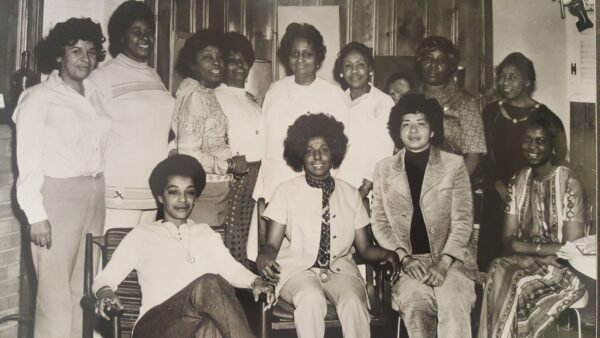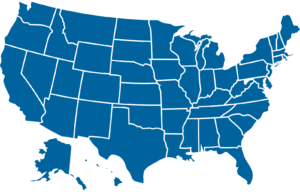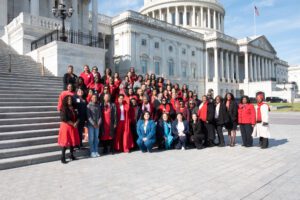ADLN Fellows
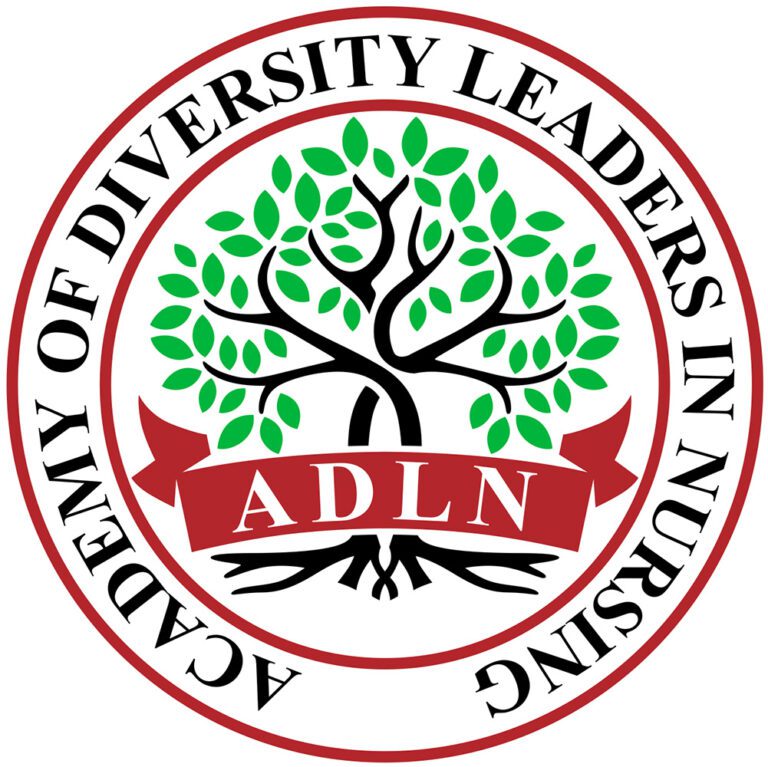
Academy of Diversity Leaders in Nursing (ADLN)
The Academy of Diversity Leaders in Nursing (ADLN) was formally established in 2024 by a vote of the board of directors of the National Black Nurses Association, Inc. The establishment of the ADLN Fellows codifies the work of nursing professionals and other healthcare professionals who are working in the areas of Justice, Equity, Diversity, and Inclusion (JEDI) with the goal of advancing health equity for all. ADLN Fellows are JEDI champions in the areas of nursing education, research, practice, administration, and policy. With the formation of this new fellowship academy, we seek to set a clear definition of JEDI expertise, performance indicators, recognition of gold standards, and synergy among those who meet the ADLN criteria. ADLN Fellowship status serves as a benchmark for and legitimization of the concept of JEDI excellence in nursing and healthcare.
Jump to Links:
Navigate quickly using the links below
Mission & Vision
Our Impact
The ADLN Fellows program aligns with NBNA’s mission and vision and will ignite opportunities that result in a stronger overall impact.
NBNA Mission
"To serve as the voice for Black nurses and diverse populations ensuring equal access to professional development, promoting educational opportunities and improving health."
NBNA Vision
"Unified Black Nurses making a difference in creating healthy people, and communities worldwide."
ADLN Mission
"Advancing justice, equity, diversity, and inclusion in nursing, health, and healthcare through combatting all forms of oppression with the ultimate goal of achieving health equity."
ADLN Vision
"A future where nurses represent the rich diversity of the communities we serve and are fully empowered to transform health for all people."
ADLN Values
1. Anti-racism
Antiracism involves actively identifying, challenging, and dismantling racism in all its forms within the nursing profession and healthcare system. This commitment includes:
- Proactive Stance: Taking deliberate actions to oppose and eliminate racism, rather than merely avoiding racist behavior.
- Education and Awareness: Promoting continuous learning and awareness about the impacts of racism and the importance of antiracist practices among nursing professionals.
- Policy and Practice Change: Advocating for and implementing policies and practices that address and rectify racial inequities and injustices in healthcare settings.
- Empowerment and Support: Supporting and empowering nurses from racial and ethnic minority backgrounds, ensuring they have equal opportunities and resources.
- Community Engagement: Collaborating with diverse communities to understand and co-create a plan to address their unique healthcare needs and challenges.
By embracing antiracism as a core value, we aim to create a more equitable, inclusive, and just healthcare environment, ultimately improving health outcomes and experiences for all patients.
2. JEDI (Justice, Equity, Diversity, Inclusion)
The JEDI (Justice, Equity, Diversity, and Inclusion) approach aims to create a fair and inclusive environment within the nursing profession. It encompasses:
* Justice: Committing to fairness and advocating for systemic changes to eliminate discrimination and bias, ensuring that all individuals have equal opportunities and are treated with respect and dignity.
* Equity: Striving to provide resources, support, and opportunities tailored to the unique needs of diverse groups, ensuring that everyone has the tools they need to succeed.
* Diversity: Valuing and embracing the wide range of backgrounds, perspectives, and experiences within the nursing community, recognizing that diversity enriches the profession and improves patient care.
* Inclusion: Fostering an environment where all individuals feel welcomed, respected, and valued, ensuring that everyone has a sense of belonging and can fully participate and contribute.
By prioritizing JEDI, we aim to cultivate a professional landscape that is just, equitable, diverse, and inclusive, ultimately enhancing the quality of care for diverse patient populations and supporting the growth and success of all nursing professionals.
3. Innovation
Innovation refers to the proactive and creative approach to developing and implementing new ideas, strategies, and practices that enhance diversity, equity, and inclusion within the nursing profession. This involves:
- Pioneering New Practices: Encouraging and adopting cutting-edge methods and technologies to improve patient care and workplace environments.
- Promoting Inclusivity: Creating novel programs and policies that address and support the unique needs of diverse populations in nursing.
- Fostering Continuous Improvement: Committing to ongoing education and professional development to stay at the forefront of diversity and inclusion advancements.
- Collaborative Problem-Solving: Engaging a diverse range of perspectives to innovate solutions that address complex challenges in healthcare.
- Driving Cultural Change: Leading initiatives that transform organizational cultures to be more inclusive, equitable, and supportive of all nursing professionals.
By embracing innovation, we aim to create a more inclusive and effective nursing profession that better serves diverse communities.
4. Advocacy
Advocacy involves actively supporting, promoting, and defending the interests and rights of diverse groups within the nursing profession. This includes:
- Championing Diversity and Inclusion: Vigorously supporting policies, practices, and initiatives that enhance diversity, equity, and inclusion in nursing.
- Empowering Underrepresented Groups: Providing a voice for marginalized and underrepresented individuals and communities within the nursing field.
- Influencing Policy and Practice: Engaging in efforts to shape and influence healthcare policies and organizational practices that impact diversity and inclusion.
- Education and Awareness: Raising awareness and educating others about the importance of diversity, equity, and inclusion in nursing and healthcare.
- Support and Mentorship: Offering support, guidance, and mentorship to diverse nursing professionals to help them navigate and thrive in their careers.
Through advocacy, we aim to create a more equitable and inclusive environment where all nursing professionals can succeed and where diverse patient populations receive culturally competent and sensitive care.
5. Integrity
Integrity signifies the commitment to honesty, ethical behavior, and moral principles in all actions and decisions. This encompasses:
- Ethical Standards: Upholding the highest standards of ethical conduct in all professional activities and interactions.
- Transparency: Being open, honest, and clear in communication and decision-making processes.
- Accountability: Taking responsibility for one’s actions and ensuring accountability in leadership and organizational practices.
- Trustworthiness: Building and maintaining trust through consistent, reliable, and honest behavior.
- Moral Courage: Standing up for what is right, even in the face of adversity, and advocating for justice and fairness.
By prioritizing integrity, we foster a culture of trust and respect, ensuring that all actions and initiatives are guided by strong ethical principles and a commitment to doing what is right for both nursing professionals and the diverse communities they serve.
6. Accountability
Accountability involves the obligation to take responsibility for actions, decisions, and outcomes to ensure transparency, trust, and continuous improvement within the nursing profession. This includes:
- Responsibility: Acknowledging and owning actions, decisions, and their consequences in both individual and collective contexts.
- Transparency: Being open and honest about processes, decisions, and outcomes, ensuring stakeholders are informed and involved.
- Performance Measurement: Regularly evaluating performance against set standards and goals to ensure objectives related to diversity, equity, and inclusion are met.
- Continuous Improvement: Actively seeking feedback and making necessary adjustments to improve practices and outcomes in fostering diversity and inclusion.
- Ethical Obligation: Upholding ethical standards and ensuring that practices align with the core values and mission of the organization.
By embracing accountability, we promote a culture of integrity, trust, and excellence, driving meaningful progress in diversity and inclusion within the nursing profession.
Requirements to Become an ADLN FELLOW
ADLN fellowship requires concurrent and ongoing active membership in a recognized nursing organization or association that advances Justice, Equity, Diversity, and Inclusion (JEDI). Examples of such organizations include but are not limited to the National Black Nurses Association (NBNA), the National Association of Hispanic Nurses (NAHN), the Asian American Pacific Islander Nursing Association (AAPINA), the Philippine Nursing Association of America (PNAA), and the National Alaskan Native American Indian Nurses Association (NANAINA).
Full requirements to become an ADLN FELLOW will be posted here along with application procedures this coming Fall 2024. The next full class of ADLN Fellows will be inducted in August of 2025 during the 53rd Annual Institute and Conference of the National Black Nurses Association, Inc in Dallas, Texas.
Categories of ADLN Fellowship
Full ADLN Fellow
Are current or former licensed nursing professionals who meet the full membership requirements to be an ADLN Fellow and have been recommended for fellowship through the ADLN application process. Full ADLN Fellows will be allowed to use the credential of “FADLN”.
Honorary ADLN Fellow
Honorary ADLN Fellows are individuals who meet the same requirements but who are non-nursing professionals. They must have a history of doing JEDI work that has advanced health equity. Honorary fellows will be allowed to use the credential of FADLN(H) and shall be exempt from paying annual dues. Honorary ADLN Fellows can serve on FADLN committees but may not vote or hold a seat on the ADLN Fellows board of directors.
Responsibilities, Duties, and Functions of ADLN Fellows
The following responsibilities, duties and functions are expected of those inducted as ADLN Fellows.
JEDI Experts
ADLN Fellows will serve as content and advisory experts for JEDI related activities of NBNA.
Legislative Agenda
ADLN Fellows will assist in developing the legislative agenda for the annual NBNA Black Nurses Day on Capitol Hill.
Publications
ADLN Fellows will be responsible for writing JEDI related columns in the NBNA newsletter and the Journal of NBNA.
Mentorship
ADLN Fellows will serve as mentors for other aspiring nursing JEDI experts.
Consultation
ADLN Fellows will serve as a consultative JEDI think tank to NBNA, NAHN, AAPINA, PNAA, NANAINA, or other identified diversity focused organization as requested.
Host Annual Session
ADLN Fellows will host an annual nursing JEDI update institute during the annual NBNA Institute and Conference.
- Satellite ADLN Fellow meetings may also be held during the annual conferences of NAHN, AAPINA, PNAA, NANAINA, or other identified diversity focused organizations as requested.
Policy Advocacy
ADLN Fellows will actively and intentionally create and advocate for policies to diversify the nursing profession through nursing research, education, practice, policy, and administrative activities.
Speaker's Bureau
ADLN Fellows will maintain an active JEDI speaker’s bureau to provide consultations on all aspects of JEDI work.
Policy Writing
ADLN Fellows will actively contribute to writing policy briefs, white papers and other legislative products as necessary to advance the ADLN mission and vision.
ADLN Fellows will actively contribute to writing policy briefs, white papers and other legislative products as necessary to advance the ADLN mission and vision.
FADLN Annual Meeting and Induction Ceremony
New ADLN Fellows will be inducted once a year. This induction will occur during the annual NBNA Institute and Conference. The induction ceremony will be a separate activity and require registration for inductees and their guest(s). Fellows must attend the ceremony in person to be inducted. If a Fellow cannot attend in person, they may defer their induction to the following year. If a Fellow cannot attend the induction ceremony the following year, their offer of ADLN Fellowship will be rescinded, and they must reapply for membership consideration. No application fee refunds or credits will be given for rescinded offers.
ADLN Designation Dues and other fees
Only active Fellows as defined in the bylaws may use the official “FADLN” or “FADLN(H)” credential designations.
ADLN Fellow Dues
ADLN Fellows who are employed full-time will pay annual dues (as set by the ADLN board of directors) to maintain active fellowship status. This fee will be due each year in July. Lifetime members of NBNA, NAHN, AAPINA, PNAA, and NANAINA must adhere to all respective organizational rules regarding any chapter or member dues. Honorary Fellows shall be exempt from annual dues and retired ADLN Fellows dues will be half the rate of full time Fellows.
ADLN Fellow Application Fee
To apply to be an ADLN Fellow will require a one-time non- refundable application fee. This fee will be posted annually along with the call for new fellow applications. Applications that do not follow submission guidelines or meet fellowship criterion will be rejected without review. Refunds will not be provided for rejected applications. The ADLN Fellow selection committee will not provide individual feedback on applications that are accepted or rejected.
ADLN Fellow Induction Fee
A one-time ADLN Fellow induction fee will be assessed annually for all new incoming Fellows. This one-time fee will cover the cost of the induction ceremony, certificate, ADLN Fellow medal, and your first-year dues. This fee will be due at the time of acceptance of ADLN Fellowship and before the induction ceremony.
The Inaugural ADLN Fellowship Class
The inaugural group of ADLN Fellows were inducted in a special ceremony on Thursday July 25, 2024 following the opening ceremony the of 52nd Annual NBNA Institute and Conference in San Francisco, CA at the Marriott Marquis hotel. A dinner reception followed the induction ceremony.
The inaugural group of Fellows were chosen because of their proven exceptional track records of JEDI related nursing work in either education, research, practice, policy, or administration. The inaugural Fellows meet or exceed the requirements that have been established for ADLN membership and are therefore invited to be members of the inaugural cohort of ADLN Fellows. This historic group of inaugural ADLN Fellows belong to one of three categories.Posthumous ADLN Fellows
These historical trailblazing nurse leaders paved the way for JEDI in nursing. Despite their extraordinary contributions, many of these phenomenal leaders did not receive the recognition they deserved during their lifetime. We stand on their shoulders and honor them posthumously by inducting them as inaugural ADLN Fellows.
- Gertrude Baker, RN
- Hattie Bessent , EdD, MSN, RN, FAAN
- Goldie D. Brangman, MED, MBA, CRNA
- Mary Elizabeth Carnegie, DPA, RN, FAAN
- Phyllis Mae Daley, RN
- Phyllis Davis, RN
- Rhetaugh Dumas, PhD, MSN, RN
- Martha Minerva Franklin, RN
- Vernice Ferguson, MA, RN, FRCN, FAAN
- Barbara Garner, RN
- Mary Starke Harper, PhD, DSc, RN, FAAN
- Sadako Holmes, MPH, RN
- Florrie Jefferson, RN
- Phyllis Jenkins, RN
- Eddie Bernice Johnson, MPA, BS, FAAN
- Mattiedna K. Johnson, RN
- Hazel Johnson-Brown , PhD, MS, BS
- Elizabeth Lipford Kent, PhD, RN, FAAN
- Ophelia Long, MS, RN
- Mary Eliza Mahoney, RN
- Gloria J. McNeal, PhD, MSN, ACNS-BC, FAAN
- Ethelrine Shaw Nickerson, PhD, RN, FAAN
- Estelle Massey Osborne, MA, BS, RN
- Della H. Rainey, RN
- Gloria Rookard, RN
- Lauranne Sams, Psy.D., MSN, RN
- Mary Seacole
- Anita Small, RN
- Gloria R. Smith, PhD, BSN, RN
- Adah Belle Thoms, RN
- Mabel Keaton Staupers, RN
- Mattie Watkins, RN
- Doris Wilson, RN
Luminary ADLN Fellows
This group of inaugural Fellows comprises highly distinguished individuals who are renowned for their JEDI contributions in education, research, practice, policy, or administration. Each luminary ADLN Fellow has at least thirty years of experience in nursing and continues to open doors for greater JEDI in nursing while they continue their innovative groundbreaking work.
- Lydia Albuquerque, DNP, RN, ACNP-BC, CCRN
- Greg A. Adams, MHA
- Virginia W. Adams, PhD, RN, FAAN
- Kimberly Adams Tufts, DNP, WHNP-BC, FAAN
- Birthale Archie, DNP, MSN, BS, RN
- Gloria Lamela Beriones, PhD, RN, NEA-BC
- Sylvia Trent Adams, PhD, MS, RN, FAAN
- Virginia Allen, LPN, DHL(hon)
- G. Rumay Alexander, EdD, RN, FAAN
- Angela Amar, PhD, RN, ANEF, FAAN
- Debra Barksdale, PhD, FNP-BC, CNE, FAANP, ANEF, FAAN
- Lorraine Baugh, MS, RN
- Kenya V. Beard, EdD, RN, AGACNP-BC, ANEF, FAAN
- Curlene Jennings Bennett, RN
- Patricia K. Bradley, PhD, RN, FAAN
- Linda Burnes Bolton, DrPH, MS, RN, FAAN
- Janice Brewington, PhD, RN, FAAN
- Constance Brown, BSN, RN-BC, CCM
- Carrie Rogers Brown, EdD, MS, RN
- Lucinda Canty, PhD, CNM, FACNM, FAAN
- Brigit M. Carter, PhD, RN, CCRN, FAAN
- Peggy L. Chinn, RN, PhD, DSc, (Hon), FAAN
- Veronica Clarke-Tasker, PhD, RN, MBA, MPH, MDiv
- Bernice Coleman, PhD, ACNP-BC, FAHA, FAAN
- Christopher L. Coleman, PhD, MS, MPH, PMHCNS, FAAN
- Evelyn Collier-Dixon, TD, MSN, MDiv
- Sandra Davis, PhD, DPM, ACNP-BC, FAANP
- Martha A. Dawson, DNP, MSN, RN, FACHE, FAAN
- Vernell P. DeWitty, PhD, RN, FAAN
- Sally Ellis Fletcher, PhD, RN, MSN, FNAP
- Rowena W. Elliott, PhD, RN, CNN, CNE, AGNP-C, LNC, ANEF, FAAN
- Marie Osline Etienne, DNP, APRN, FNP, PNP, D.Min (h.c.), PLNC
- Shirley Evers-Manly, PhD, RN, FAAN
- Sheldon D. Fields, PhD, RN, FNP-BC, CRNP, AACRN, FAANP, FNAP, FAAN
- Catherine Alicia Georges, EdD, RN, FAAN
- Joyce Newman Giger, EdD, APRN-BC, FAAN
- Wallena Gould, EdD, CRNA, FAANA, FAAN
- Ernest J. Grant , PhD, RN, FAAN
- Mary M. Gullatte, PhD, RN, ANP-BC, AOCN, LSSYB, FAAN
- Jill Hamilton, PhD, RN, FAAN
- Allyssa L. Harris, RN, PhD, WHNP-BC
- Rebecca Harris-Smith, EdD, MSN, BA, RN
- Lola Denise Jefferson, ThD, MA, MS, RN
- Marilyn Johnson, ThD, MEd, BSN, RN, CORN
- Rolanda L. Johnson, PhD, RN, FAAN
- Judith Jourdain-Earl, MA, RN
- Wrenetha Julion, PhD, MPH, RN, FAAN
- Carl Kirton, DNP, RN, MBA, ANP, FAAN
- Bettye Davis Lewis, EdD, RN, FAAN
- Marcia Lowe, PhD, RN, GERO-BC
- Beverly Malone, PhD, RN, FAAN
- Delanor Manson, MA, BSN, RN
- Diana J. Mason, PhD, RN, FAAN
- Angie Millan, DNP, RN, FAAN
- Margaret Moss, PhD, JD, RN, FAAN
- Teri A. Murray, PhD, PHNA-BC, RN, FAAN
- Jamesetta A. Newland, PhD, FNP-BC, DPNAP, FAAN
- Barbara Nichols, MS, RN, FAAN
- Geneva R. Norman, MD, APN, CNP, RN
- Freida Outlaw, PhD, RN, APRN, FAAN
- Cheryl Peterson, MSN, RN
- Janice Phillips, PhD, RN, FAAN
- Randolph Rasch, PhD, RN, FNP, FAANP, FNAP, FAAN
- Hilda Richards, EdD, MS, RN
- Chadwick Ricks, DNP, MSN, RN, ACHE
- Norma Martinez Rogers, PhD, RN, FAAN
- Linda D. Scott, PhD, RN, NEA-BC, FNAP, FAAN
- Betty Smith Williams, DrPH, MN, BS, RN, FAAN
- Deborah Stamps, EdD, MBA, MS, RN, GNP, NE-BC, FAAN
- Ora Lea Strickland, PhD, RN, FAAN
- Eileen Sullivan-Marx, PhD, RN, FAAN
- Loretta Sweet-Jemmott, PhD, RN, FAAN
- Charlotte Thomas Hawkins, PhD, RN, FAAN
- Barbara Todd, DNP, CRNP, FAANP, FAAN
- Debra A. Toney, PhD, RN, FAAN
- Sallie Tucker Allen, PhD, RN, FAAN
- Monica McLemore, PhD, MPH, RN
- Sandra Millon Underwood, PhD, RN, FAAN
- Wanda Montalvo, PhD, RN, FAAN
- Keith O. Plowden, PhD, RN, PMHNP-BC,
- Paulina Van, PhD, RN, FAAN
- Antonia M. Villarruel, PhD, RN, FAAN
- Roberta Waite, EdD, MSN, RN, PMHCNS, ANEF, FAAN
- Deidre Walton, JD, MS, RN, PhD(c)
- Deborah Washington, PhD, RN
- Linda Washington-Brown, PhD, EJD, APRN-C, MSN, CNS, HCRM, FAANP, FAAN
- Kenneth R. White, PhD, AGACNP, ACHPN, FACHE, FAAN
- Ena Williams, PhD, MBA, RN, CENP, FAAN
- Eric J. Williams, DNP, RN, CNE, ANEF, FAAN
- Michelle Y. Williams, PhD, RN, FAAN
Distinguished ADLN Fellows
This group of inaugural Fellows consists of individuals who have created innovative JEDI initiatives in nursing and transformed nursing education, research, practice, policy or administration.
- Kupiri Ackerman-Barger, PhD, RN, CNE, ANEF, FAAN
- Sadie Anderson, MS, MBA, RN
- Edwin Aroke, PhD, CRNA, FAAN, FAANA
- Meedie Bardonille, MSN, RN, PCCN-K, FCN
- Kamila Barnes , DNP, RN, FNP-C
- Dale E. Beatty, DNP, RN, NEA-BC, FAONL, FAAN
- Akia Blandon, DNP, APRN, AGPCNP-BC, PMHNP-BC
- Katie Boston-Leary, PhD, MBA, MHA, RN, NEA-BC
- Felesia Bowen, PhD, DNP, PPCNP-BC, FAAN
- Aisha Brooks, DNP, MPH, RN, FAAN
- Gina S. Brown, PhD, MSA, RN
- Dewi Brown-Deveaux, DNP, BS, RN-ONC
- Kellie Bryant, DNP, WHNP, CHSE, FSSH, FAAN
- Kim Cartwright, LPN
- Sandy Cayo, DNP, FNP-BC, FAAN
- Natalia Cineas, DNP, RN, NEA-BC, FAAN
- Yvette Conyers, DNP, RN, FNP-C, CTN-B, CFCN, CFCS, CNE
- Stephan Davis, DNP, MHSA, FACHE, FAAN
- Angela Richard-Eaglin, DNP, MSN, FNP-BC, CNE, CDE, FAANP
- Marlon Garzo Saria, PhD, RN, NEA-BC, NPD-BC, AOCNS, FAAN
- Selena Gilles, DNP, ANP-BC, CNEcl, ANEF, FNYAM, FAAN
- Vincent Guilamo-Ramos, PhD, MPH, LCSW, RN, ANP-BC, PMHNP-BC, FAAN
- Ashley Graham-Perel, EdD, RN, NPD-BC, MEDSURG-BC, CNE
- Orlando Harris, PhD, RN, FNP, MPH, FAAN
- Ronald Hickman, PhD, RN, ACNP-BC, FNAP, FAAN
- Kechi Iheduru-Anderson, DNP, MSN, CNE
- Julius Johnson, DNP, RN, FNP-BC, FAANP
- Randy A. Jones, PhD, RN, FAAN
- Mary L. Kelly, DNP, MSN, MHA, NEA-BC
- Tavell Kindall, PhD, DNP, FNP-BC, AACRN, AAHIVS, FAANP
- Jung-Ah Lee, PhD, MN, RN, FGSA, FAAN
- Loretta Lee, PhD, RN, CRNP, FNP-BC
- Lisa M. Lewis, PhD, RN, FAAN, FAHA
- Sandra Lindsay, DHSc, MBA, MSN, RN, CCRN-K, NE-BC
- Courtney “CJ” Marbley, MBA, BSN, RN
- Danielle McCamey, DNP, ACNP-BC, FCCP
- Vivienne Pierce McDaniel, DNP, MSN, RN
- Audrey P. Miller, PhD, MSN Ed, APRN, PPCNP-BC, CPN, CNE, LNC
- Angelo D. Moore, PhD, MSN, RN, NE-BC, FAAN
- Leonora Muhammad, DNP, APRN, AGPCNP-BC, CCHP
- LaRon Nelson, PhD, RN, FNP, FNYAM, FNAP, FAAN
- Michelle A. Nelson, PhD, MS, APRN, FNP-BC, FAANP, FNAP, FAAN
- Larider Ruffin, DNP, APN, ANP-BC, AGNP-C, CTTS, FAAN
- Blake K. Smith, MSN, RN, FAAN
- Danica Sumpter, PhD, RN
- Jacquelyn Y. Taylor, PhD, PNP-BC, RN, FAHA, FAAN
- Katherine Tucker, DNP, RN, APRN-BC, NE-BC
- Lauren Ashley Underwood, MS, MPH, RN, FAAN
- Jing Wang, PHD, MPH, RN, FAAN
- Mitchell J. Wharton, PhD, RN, FNP-BC, CNS, ACRN, AAHIVE, FAAN
- Sherri Wilson, DNP, MPA, RN, FAAN
- Kenya D. Williams, EdD, MBA, MSN, RN, RP, CAE
The ADLN Inaugural Board of Directors (2024 – 2025)
President
Kenya V. Beard, EdD, RN, AGACNP-BC, ANEF, FAAN
President Elect
Sally Ellis Fletcher, PhD, RN, MSN, FNAP
Treasurer
Julius Johnson, DNP, RN, FNP-BC, FAANP
Secretary
Felesia Bowen, PhD, DNP, PPCNP-BC, FAAN
Parliamentarian
Selena Gilles, DNP, ANP-BC, CNEcl, ANEF, FNYAM, FAAN
Historian
Ashley Graham-Perel, EdD, RN, NPD-BC, MEDSURG-BC, CNE
Origins of the ADLN and the Organizing Committee:
The ADLN came about because of conversations among concerned nursing colleagues and Dr. Sheldon D. Fields the 14th President of the National Black Nurses Association, Inc about what needed to be done specifically in nursing to combat all of the anti-Black, anti-DEI, anti-trans health, rhetoric and changes going on in our society. Dr. Fields quickly realized that this was a much bigger issue and started to have more conversations with additional nursing colleagues. This led to the formation of an organizational committee that was ultimately responsible for creating the ADLN, its mission, vision, values, bylaws, the ADLN Fellow criteria, and those chosen to be members of the inaugural class of fellows. The ADLN organizational committee consisted of:
- Kupiri Ackerman-Barger, PhD, RN, CNE, ANEF, FAAN
- G. Rumay Alexander, EdD, RN, FAAN
- Kamila Barnes , DNP, RN, FNP-C
- Kenya V. Beard, EdD, RN, AGACNP-BC, ANEF, FAAN
- Felesia Bowen, PhD, DNP, PPCNP-BC, FAAN
- Kellie Bryant, DNP, WHNP, CHSE, FSSH, FAAN
- Stephan Davis, DNP, MHSA, FACHE, FAAN
- Sheldon D. Fields, PhD, RN, FNP-BC, CRNP, AACRN, FAANP, FNAP, FAAN
- Sally Ellis Fletcher, PhD, RN, MSN, FNAP
- Selena Gilles, DNP, ANP-BC, CNEcl, ANEF, FNYAM, FAAN
- Ernest J. Grant , PhD, RN, FAAN
- Wallena Gould, EdD, CRNA, FAANA, FAAN
- Julius Johnson, DNP, RN, FNP-BC, FAANP
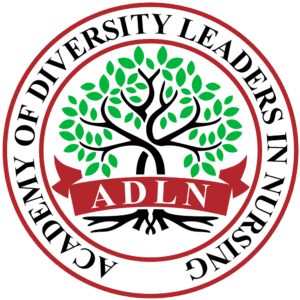
About The ADLN Logo
The ADLN logo is a “Knowledge Diversity Tree“. This symbol was chosen to highlight our collective and intentional commitment to our efforts to improve nursing and healthcare for all which is deeply rooted in the principles of Justice, Equity, Diversity, and Inclusion.

